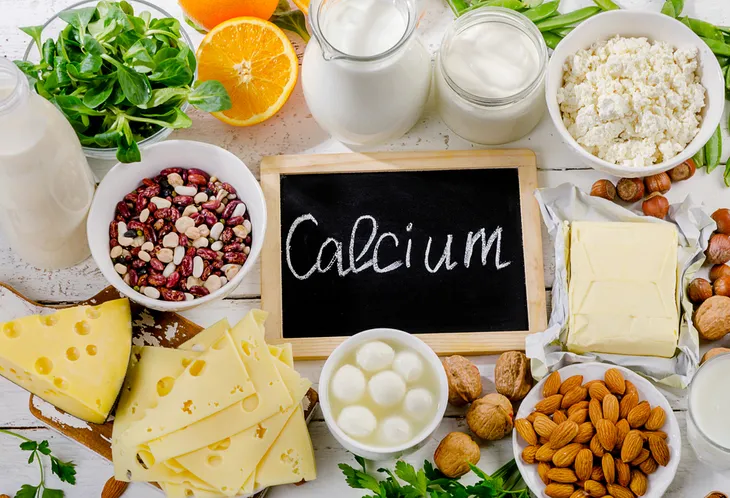You may not wake up and think to yourself, “Wow, I really could use some magnesium today,” but the truth is your body needs it – at least one source says it’s responsible for up to 300 biological functions. In fact, a deficiency can cause motor tics and muscle twitches, anxiety, irregular heartbeat and even seizures.
Luckily, there are several ways to give yourself more magnesium without going to extremes. You could take magnesium supplements, but here are six other ways you can get the vital chemical element back into balance and hopefully alleviate some of those symptoms…
Think you have a magnesium deficiency? Try Doctor’s Best High Absorption Magnesium Supplements – A 4+-star Amazon product with over 5,500 consumer reviews.
1. Eat it Up
FoodRenegade.com says it’s as easy as changing up your diet – well, it may not be so easy for some, but it’s definitely worth a try. The source says that foods with the most magnesium include cooked spinach, black beans, halibut, almonds, brown rice, and cashews.
There are number of seeds you can pick up from the grocery store that will also pack magnesium, such as pumpkin seeds, flax seeds and sunflower seeds, adds the source. Some good news – if you’re more of a chocolate lover, you can get magnesium from dark chocolate.
2. Spray it On
Apparently, magnesium ingested orally is actually not the most efficient way for your body to absorb it, at least according to Dr. Axe. It notes that a 2010 study found those who used “transdermal magnesium therapy” saw increases (of 25.2-percent) in their cellular magnesium levels after 12-weeks.
So… how do you apply this oil? The source notes there are actually a number of ways: you can spray it directly onto your skin (the most common application), use it as massage oil, use it as a “sports rub” (the source suggests wintergreen, an essential oil), or taking a bath in diluted magnesium chloride.
3. Soak it Up
Further to that last point about absorbing magnesium while spending some quality time in the tub, FoodRenegade.com says that you can take an Epson salt bath to help cure your deficiency. “Epsom salts aren’t actually salts at all, but magnesium sulfate,” notes the source. They got their name from their place of discovery – Epsom, England.
What better way to get your magnesium fix than relaxing in a nice, warm tub with a book? “Epsom salt baths don’t just calm noisy souls, they improve health as well,” it notes. Just make sure you tell your family to leave alone for a while… for the good of your health, of course.
4. Scale it Back
Okay, this one isn’t exactly a “treatment,” it’s an adjustment that can help magnesium thrive better in your system. LiveStrong says ingesting the right amount of calcium and magnesium is a “balancing act,” as you need magnesium to metabolize calcium.
However, if your calcium intake is too high, you need to make sure you’re getting adequate magnesium or you could become depleted. The source says the recommended daily intake of calcium to magnesium ranges from 2.5-to-1 to 4-to-1 (depending on age and gender). So be mindful of any calcium supplements you’re taking or if you eat a lot of dairy – you might want to turn to the above remedies to ramp up magnesium to offset it (or scale back the calcium if your doctor says it’s OK).
5. Get Fermented
BodyEcology.com says you can turn to fermented food products to give your essential functions a magnesium jolt. These fermented products “populate your gut with probiotics” – the good bacteria and yeast – notes the source.
While they might not have any magnesium content on their own, these products help your body absorb more of the element from other sources, it explains. It even offers a handy list of fermented drinks to try (aside from beer). Kombucha, a fermented tea product, may also be a way to get more probiotics – and you can buy it premade at the grocery store. Bonus: it’s carbonated and comes in various flavors.
6. Take a Pill
You could turn to good ol’ over-the-counter supplements if the other methods fail, or you just like the idea of being able to take a pill (or drink a dissolved powder) and be done with it. WebMD offers guidelines for how much magnesium you should get per day based on your age and gender, but it’s the total of ALL sources, not just supplements.
It’s probably a good idea then to talk to a doctor or pharmacist about how much magnesium you should be ingesting as a supplement. “Excessive use of magnesium supplements can be toxic,” notes the source. The upper limit dosage for a supplement according to WebMD is 65-milligrams a day for children up to age 3, 110-milligrams a day for children ages 4-8, and 350-mg daily for adults (and children aged 9-and older).









